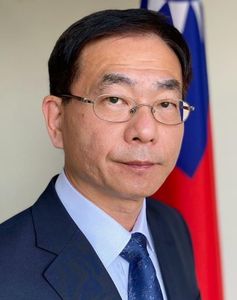Taiwan’s presidential elections have garnered international attention, not only because of their potential implications on the future of the country itself and the region, but also because of the inspiration they provide to the world. The democratic consolidation in Taiwan serves as a beacon of hope, showcasing the resilience of democracy in the face of geopolitical challenges and in the pursuit of a progressive and inclusive society.
Some 19.5 million Taiwanese voters will head to the polls on January 13 to elect their next president and 113 members of the Legislative Yuan, the highest lawmaking body in Taiwan. In the past 30 years, having held seven free and fair direct presidential elections, Taiwan has matured into a fully democratic country well recognised around the world.
Taiwan’s resilience in the face of external pressures also serves as an inspiration. Standing on the frontline against expanding authoritarianism, Taiwan has continued to uphold democratic principles and has resisted attempts to compromise its sovereignty in spite of longstanding diplomatic isolation and constant threats from an assertive neighbour. In the meantime, Taiwan has strived to strengthen its defence capabilities and democratic resilience while confronted by increasing threats like grey-zone campaigns, military intimidation, cyberattacks and information manipulation. As a consequence, the international community has come to appreciate how Taiwan’s citizens remain steadfast in their commitment to democratic values.
It is important to note that China’s ambitions, by no means limited to Taiwan, have expanded on the India-China border, in the Indian Ocean, South China Sea, East China Sea and the Pacific Ocean.
Taiwan is renowned both as a crucial hub for international transport and for the pivotal position it occupies in the global semiconductor supply chains. More than 50 per cent of the world’s freight passes through the Taiwan Strait and Taiwan produces 90 per cent of the advanced semiconductor chips used around the world. If Taiwan comes under attack, the global economy and security will likely suffer.
In recent years, China has used several pretexts to militarily intimidate Taiwan, posing a serious challenge to cross-strait and regional security and putting the international community on high alert. This year, a series of joint communiqués issued at bilateral or multilateral meetings such as the G7 summit, the US-Japan summit and the US-Japan-ROK (South Korea) summit at Camp David have all underscored the importance of maintaining peace and stability in the Taiwan Strait.
As such, we remain deeply appreciative of President Joe Biden’s reiteration that the US opposes any unilateral changes to the status quo in the Taiwan Strait during his meeting with Chinese President Xi Jinping on the sidelines of the APEC Summit in California on November 15. President Biden emphasised that differences should be resolved peacefully as it is in the international community’s best interest to keep the region peaceful and stable.
As a responsible stakeholder in the Indo-Pacific region, Taiwan will continue to work with all like-minded countries to defend the rules-based international order and ensure a free and open Indo-Pacific. I can therefore guarantee that the new administration after the January election in Taiwan will not deviate from the fundamental policy of maintaining peace and stability across the Taiwan Strait.
Over the years, Taiwan and India have nurtured a natural and reliable partnership. Ever since both countries established representation in each other’s capitals in 1995, bilateral relations have undergone massive transformation. Bilateral trade has grown more than nine-fold from $0.93 billion in 1995 to $8.4 billion in 2022. A total of 220 Taiwanese enterprises have set up business operations in India with an accumulated investment value of $4.2 billion. In the area of educational cooperation, 31 Taiwan Education Centres have been launched across Indian university campuses, attracting over 8,000 Indian students to take up Mandarin courses and to pursue further studies in Taiwan. In addition, Taiwan and India have made great strides in the field of science and technology, with 136 joint research projects successfully implemented since 2007.
I am also glad to note the Taipei Economic and Cultural Office (TECO) in Mumbai is scheduled to open as part of our ongoing efforts to facilitate bilateral exchanges with west India. Moreover, three retired Indian service chiefs visited Taiwan in August to take part in the Ketagalan Forum to discuss defence and security issues in the Indo-Pacific.
I am pleased to highlight External Affairs Minister S. Jaishankar’s remarks in November recognising Taiwan’s achievement in electronics and semiconductors as well as India’s substantial technology, economic and commercial relations with Taiwan. It is clear that our two countries can jointly make greater contributions to a free, open and resilient Indo-Pacific region.
Taiwan’s elections are not only a critical watershed choice of resilience of democracy versus autocracy, but are also likely to have a significant impact on the future dynamics of Taiwan-India relations. The shared commitment to democratic values, economic collaboration and strategic cooperation make our two nations natural partners in the evolving global landscape.
―The author is Taiwan’s representative to India.



